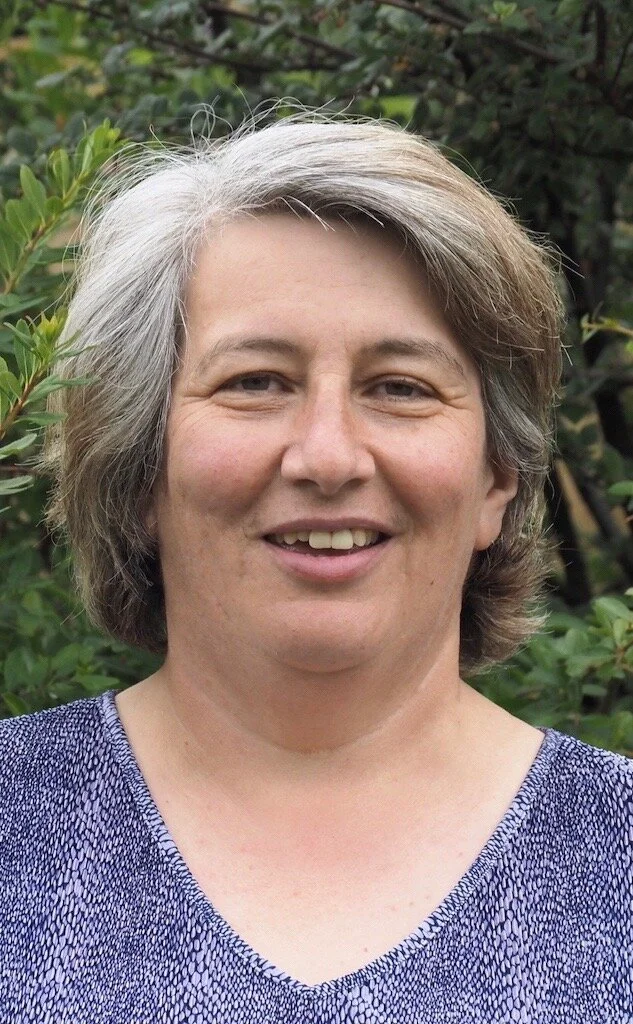Helen Barry
Personal photo supplied by Helen Barry
It's been 35 years since engineer, rock-climber and musician Helen started working for British Aerospace but she still seems as excited by her job as she was as a young mathematics and physics graduate from Bristol University in 1985.
“Many of my co-graduates went on to become accountants but I really didn't fancy that!” she laughs. Her boyfriend at the time, now husband, was already working for the company so she thought she might as well apply there too.
British Aerospace, as it was then, has now morphed into BAe Systems and today Helen is employed by MBDA UK, the British branch of the Franco-British-Italian-Spanish-German company that makes missiles for aircraft, ships and ground forces.
Her first job was to design control and guidance algorithms for some of the weapons. “Clearly your conscience has got to be comfortable with working for a defence company,” she remarks, adding that the word “defence” must be understood in opposition to “offence”. “Engineering is really extremely interesting in that sector because it's very cutting edge. And unlike at university you're faced with problems that may not have an answer,” she remarks, clearly still relishing that challenge.
She joined two other women in the department of 50. “That made it positively female friendly,” she smiles. She believes there is an advantage in being a woman in such a male-dominated profession: “you stand out so people remember you, which is fine as long as they don't remember you for doing something wrong!!” Helen says she has never experienced anything that made her feel uncomfortable in the workplace, but when prodded a little admits that sometimes “it has been a struggle always working in a very male dominated environment.”
““Clearly your conscience has got to be comfortable with working for a defence company””
By this she means that she's perhaps taken a bit longer to reach her present executive position than she wanted it to, “but then maybe it's because I wanted to stay in Bristol and not move to Stevenage” which is the headquarters of MBDA UK in the suburbs of London. “I was born in a London suburb and lived there for 18 years and knew that I really didn't want to do so again,” she tells me in a Skype interview. She looks thoughtful for a moment and then adds, “It was probably also because in 2007 I decided to stay at the coalface of projects rather than move to functional management but sometimes you wonder...”
She opted to stay in engineering rather than going down the management route because, “I like managing tasks. I really enjoy team work and I love the variety in technical things.”
Helen's parents were both academic biologists. “My mother had a senior lecturing position and had my sister and me when she was quite old. Her life revolved around her family and her work and she always told me that you had to take care of at least two of the three pillars of your life: career, family, social life. For me it was the career and social life pillars,” she says, adding quickly that “it wasn't a choice. Family just didn't happen.”
She and her husband are avid rock-climbers and, until covid-19 hit, would frequently travel overnight from Bristol on a Friday to the world-renowned bouldering site of Fontainebleau forest (about 80 kms south of Paris). “We'd climb over the weekend and then drive back late on Sunday, getting home in the middle of the night for a few hours sleep before going back to work on Monday!”
Helen is also a pianist and viola player “but got fed-up with only playing the viola parts so two years ago I started the violin,” she says modestly. The two orchestras and two string-groups that she plays with keep her busy up to four evenings a week.
She summarises the first decade of her professional life as “having fun and doing sums” but then in 2000 she was appointed the design authority for the command and control of the Sea-Viper project. A design authority is the person, or group, who has an end-to-end view of a large scale programme and is responsible for ensuring that solutions meet its goals, needs and specifications. The Sea-Viper is the main weapon to protect the Royal Navy's Type-45 class of ships from airborne attacks.
Helen then became the chief systems engineer for the next-generation air defence weapon, the Sea Ceptor, which is in service on the Royal Navy's Type 23 and nearing the end of development for the Type 26 frigates.
She has, of course, been aboard the ships “because, there are things aboard that I made!” And she explains that “when you meet those in the armed forces whose lives depend on these things then it makes you feel more comfortable working in defence.”
Three months ago, in March 2020, Helen was appointed head of technical excellence for MBDA UK. “Effectively the buck stops with me,” she says, explaining that her small team is responsible for signing off the certificates of design of behalf of the Managing Director in the UK prior to delivery to the customer. In simple terms: “we're there to check the engineering.”




